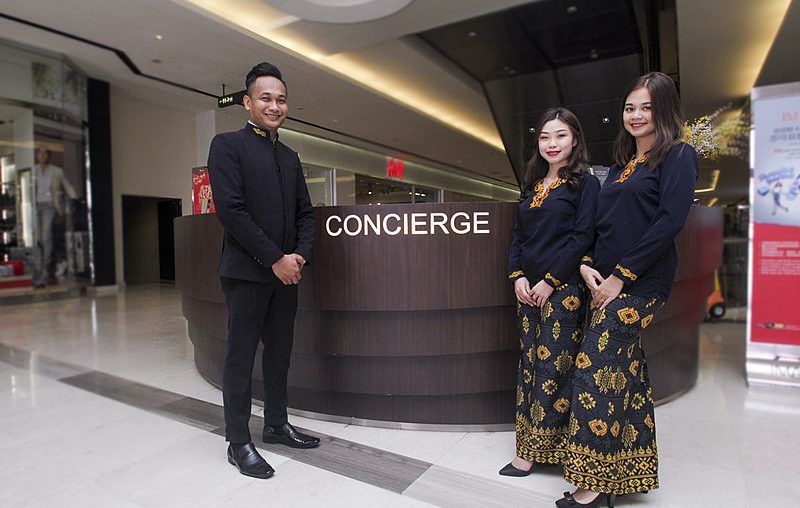The ultimate insider, able to tell hotel guests what is worth seeing, doing, and eating in their vacation destination, the hotel concierge is often looked at as merely a source for a restaurant recommendation or a sure way to secure a taxi. But not taking advantage of the many connections and vast knowledge that a good concierge has at his or her fingertips may mean missing out on a wealth of experiences while on vacation. The best part of all is that every piece of knowledge and expertise that the concierge has, every suggestion and reservation he or she makes, is completely and totally free to every hotel guest.
Getting the most out of your concierge
The job of the concierge is generally the same in every hotel, namely to make the guests’ stays as pleasurable and satisfactory as possible by entertaining any and all reasonable requests that the guests make, provided of course that the requests are legal. The specifics of a concierge’s job may vary slightly depending on where the hotel is located. For example, itinerary planning is a common guest request of many concierges in cities such as Boston, Washington, DC, New York City, or Seattle. Most concierges have built relationships with local businesses, restaurateurs, and theaters over the years and can usually secure the perfect gift, reservations for dinner, or tickets for the most popular shows with just a phone call.
Getting the most out of a concierge begins with contacting him or her in advance of the trip. Contacting the concierge to assist with simple hotel booking is a great way to start. Many concierges like to get a sense of what their guests prefer and what they want to do and see while visiting the city, and touching base before the vacation even begins is the best way to accomplish this. Contacting the concierge anywhere from a few days to several weeks before the trip is recommended. This kind of advance notice will allow the concierge to make the necessary calls and contacts and, if they are unable to plan things just as desired, gives them the time to come up with alternate plans that will suit the guests.
To tip or not to tip
Getting the most from the concierge service can come down to a single piece of advice: there is no wrong way to tip. Most concierges are paid an hourly wage, so tips are always welcome. When a concierge gets a tip is a matter of timing on the guests’ part and preference on the concierge’s part. Some concierges prefer to receive a gratuity upon arrival; this is particularly appropriate if the guests have been in contact prior to arriving and the concierge has already been planning and working for them for some time. Others would rather that guests wait until later in their stay, which gives the concierge the opportunity to show the guests what they can do, “earning” their tip.
If tipping with cash is not a guest’s cup of tea, a non-monetary gift can be given as an alternative. Many hotels will have their concierge staff deposit any monetary tips they receive into a pool and then divide the tips equally among all the staff members. A non-monetary gift such as alcohol, jewelry, or a food basket, is a good way to ensure that a specific concierge receives the reward they have earned.




